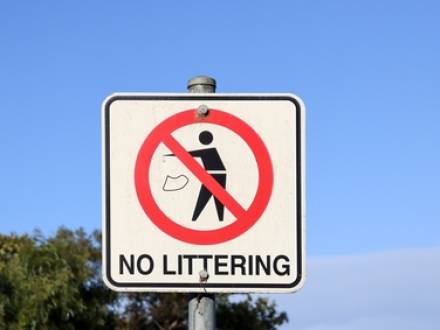Aggravated Criminal Littering: A Hidden Tennessee Felony
 Few of us ever imagine that garbage could lead to a criminal record; we generally think of littering as a minor fine or ticket. In Tennessee, however, certain acts of illegal dumping can rise to a felony-level offense under Tennessee Code Annotated Section 39-14-502. The crime is known as Aggravated Criminal Littering.
Few of us ever imagine that garbage could lead to a criminal record; we generally think of littering as a minor fine or ticket. In Tennessee, however, certain acts of illegal dumping can rise to a felony-level offense under Tennessee Code Annotated Section 39-14-502. The crime is known as Aggravated Criminal Littering.
This statute is applicable when a person knowingly disposes of large amounts of trash, debris, or hazardous materials in a way that harms public property, water sources, or wildlife. Depending on the weight and intent, a conviction for this offense can result in up to six years in prison and fines of $3,000 or more.
If you are facing charges of aggravated criminal littering, the sooner you consult with an experienced Farragut, TN criminal defense lawyer, the better the outcome you are likely to have. You should not take these charges lightly, as the penalties for a conviction can be harsh.
What Are the Differences Between Aggravated Criminal Littering and Simple Littering?
Aggravated criminal littering is the knowing "placement, discharge, or disposal of litter on public or private property without permission. Aggravated littering focuses on volume, intent, or environmental damage, and is a felony offense. Simple littering is generally a Class B misdemeanor.
In the context of Tennessee law, "simple criminal littering" refers to offenses of a specific size, specifically, more than five pounds in weight or 7.5 cubic feet in volume, but less than or equal to 10 pounds in weight or 15 cubic feet in volume. The penalties for simple criminal littering include fines, court costs, and up to 40 hours of community service – usually picking up trash.
Aggravated criminal littering includes more than 10 pounds in weight or 15 cubic feet in volume and is a Class A misdemeanor unless the amount is more than 100 pounds or 30 cubic feet, at which point it becomes a Class E felony. The Class A misdemeanor results in fines up to $2,500, court costs, and up to 160 hours of community service. The penalties for a Class E felony include a prison sentence of one to six years and/or a fine of up to $3,000. A felony conviction also affects future employment, housing, and other rights.
When determining charges, the distinction is a matter of scale; aggravated criminal littering is a more serious offense because it involves commercial intent or a greater volume. Dumping tires is likely to result in aggravated criminal littering, both because of weight and because tires are considered an environmental crime under the Solid Waste Management Act of 1991.
Scenarios That Could Result in Charges of Aggravated Criminal Littering
Some potential scenarios that could trigger aggravated criminal littering charges include:
- A property owner disposes of tires, construction debris, or shingles along a rural county road.
- A business owner uses a secluded area for oil or chemical waste disposal.
- An individual dumps bags of trash in a state park, a river, or a public easement.
- A landscaping or hauling company dumps truckloads of yard waste on rural land.
Potential Defenses to Charges of Aggravated Criminal Dumping
While each case is different and the specific defense will depend on the facts and circumstances, a criminal defense attorney may argue a lack of intent (the law requires knowing disposal), consent of the property owner, or insufficient quantity of litter to meet the felony weight/volume thresholds. The defense could also be mistaken identity, or no proof of responsibility (the prosecutor must link the litter to the defendant directly, through receipts, video evidence, or vehicle registration).
Contact a Knox County, TN Criminal Defense Lawyer
If you are facing serious criminal charges, you should speak to a highly skilled Farragut, TN felony offense attorney from The Baker Law Firm. Attorney Baker has been listed in the National Trial Lawyers Top 40 Under 40 in the Criminal Defense category, and has been honored as one of Knoxville’s top DUI defense attorneys by CityView Magazine. To schedule your free consultation, call 865-200-4117.
![[[title]](/images/logo.png)








 Map & Directions
Map & Directions


